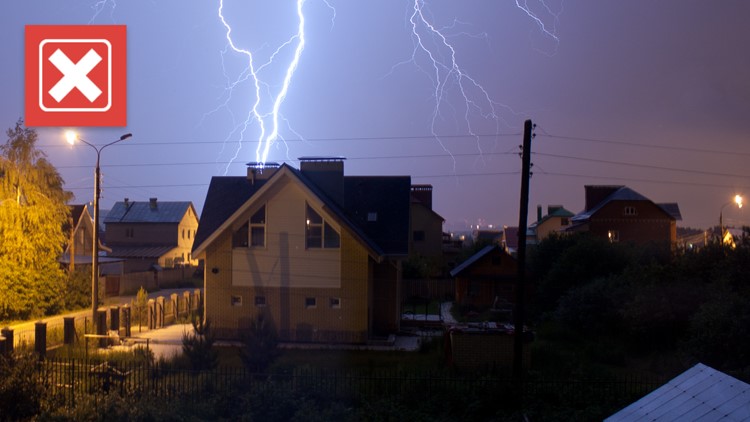It’s summertime and that means thunderstorms in many parts of the country, which can cause power outages, fallen trees, and other damage. There have been seven lightning-related fatalities in the U.S. so far this year.
VERIFY viewer Amanda said she enjoys taking a bath during a thunderstorm and asked if it’s safe. Google searches also show many people are wondering whether it’s safe to take a shower during a thunderstorm.
THE QUESTION
Is it safe to take a bath or shower during a thunderstorm?
THE SOURCES
- Centers for Disease Control and Prevention
- National Weather Service and Aaron Treadway, NOAA/NWS Lightning Safety Expert
- Chita Craft, meteorologist at KHOU in Houston
- National Lightning Safety Council
THE ANSWER
No, it’s not safe to take a bath or shower when lightning is in the area. Metal and water conduct electricity, which makes the bathtub or shower one of the riskier areas of the home.
WHAT WE FOUND
During a thunderstorm, it's important to take shelter in a sturdy place, such a home or vehicle. But there are things that you should avoid doing while indoors, like taking a bath or a shower. While it is not common, there is a chance you could be shocked by lightning while bathing.
Aaron Treadway of the National Weather Service explains that being indoors can protect you from a direct lightning strike, however, “there is still a low risk of lightning impacting you or the structure through either a direct strike or through coming in contact with the wiring and pipes.” This includes the electrical, phone, plumbing, and radio/television reception systems in your home.
While there is no recent evidence of indoor fatalities from lightning strikes, the Centers for Disease Control and Prevention reports that “about one-third of lightning injuries occur indoors.” The National Weather Service reports that an estimated 270 people are struck by lightning every year. With these numbers in mind, it can be estimated that around 90 people each year are injured by indoor lightning-related incidents.
KHOU meteorologist Chita Craft said because metal and water conduct electricity, lightning can travel through pipes and jump to a person. She recommends avoiding your toilet, or anything with metal piping as these can be conductive as well.
The CDC notes that the risk of lightning traveling through plastic pipes might be less than through metal pipes, but maintains it’s best to avoid any contact with plumbing and running water during a thunderstorm.
The National Weather Service also encourages people to stay off corded phones (cellular phones and cordless phones are fine), don't touch electronics that are plugged into the wall, and avoid doing things like washing dishes.
MORE FROM VERIFY: El Niño: VERIFY Fact Sheet













